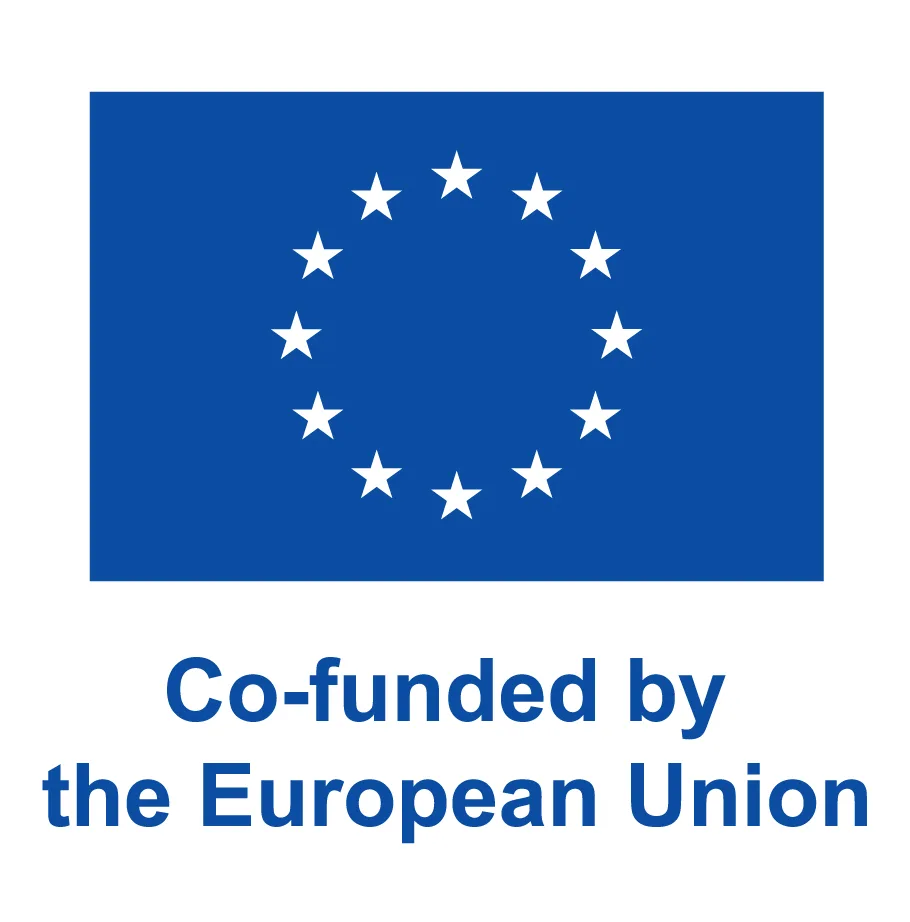We contributed to the project “Youth-led ECO community projects for prevention of school drop-outs!”
- June 3, 2025
- 4:49 pm
We were happy that we managed to contribute to the project “Youth-led ECO community projects for prevetntion of school drop-outs! As associated partners, we contributed to the development of the following project and its outputs:

Programme: Erasmus+
Key Action: Partnerships for cooperation and exchanges of practices
Action Type: Cooperation partnerships in youth
Project Identifier: 2023-1-PT02-KA220-YOU-000156550
Project Title: Youth-led ECO community projects for prevention of school drop-outs
Topics: Community development; Green skills; Preventing early school leaving and failure in education
Results Platform Project Card: https://erasmus-plus.ec.europa.eu/projects/search/details/2023-1-PT02-KA220-YOU-000156550
Funded by: the Portuguese National Agency for the management of the Erasmus+ Youth in Action programme (Agência Nacional para a gestão do programa Juventude em Acção).
Project partners are:
- DOTS – Cooperativa de Inovação Social para a Transformação Social, CRL; Portugal
- LINK DMT s.r.l.; Italy
- Centre for Non-formal education and Lifelong learning; Serbia
- Learning Wizard d.o.o.; Croatia
Project duration: 19 months – from 01/12/2023 till 30/06/2025
Summary of the project:
School drop-out is considered to be a serious problem in Europe, and it is caused by poverty, emigration but also different social factors that deprive young people from having experiential learning activates and a positive environment in their schools. Even though there are many updates in the system of education and laws that are enforced to help the situation and reduce the drop-out rate, the phenomenon is still quite present especially in some regions and rural areas. School environment is still not considered fully attractive for young people, on the contrary, it can be a potential space for bullying, peer-violence, and similarly does not focus on providing continuously activities that foster social inclusion of youngsters.
The idea of having youth involved in social and environmental projects in their community through the engagement and support of their schools, especially in regions where the school drop-out rate is high, is the main motivation for this project to be implemented. School drop-out rate as a phenomenon still is quite present in our countries despite the efforts of governments in adopting new laws and regulations for more innovative and practical approaches to education, as well as despite the efforts by the teachers to provide quality learning to their students.
The school drop-out rate can be increased due to many factors such as poverty, emigration, bullying in schools, lack of social interactions and inclusion within the school environment, lack of critical thinking development among youngsters in schools, lack of ability to accept the presence of other cultures and embrace diversity, and related causes. Listing all these reasons that cause increase or stagnation of school drop-out rates, it can be concluded that there is an urgent need to offer effective long-term solutions that offer attractive, interactive, inclusive and motivational school environment for all youngsters in the partner organisations’ countries and throughout Europe in order to support the 2030 EU target in having the school drop-out rate below 9%.
Non-formal education principles have been embraced by a high number of youngsters throughout Europe and globe, as well as considered highly attractive and practical. On the other hand, the formal education institutions do not necessarily contain interactive spaces and activities for their students. Youth work and NFE methods have resulted in being motivational and bringing interaction, embracing diversity among young people. Although there are different programmes provided through the non-formal education programmes, there is still a big gap on connecting and cooperating between youth workers and school teachers that can lead to fruitful results and prevention of school drop-out through the combination of formal and non-formal education methods, as well as through the exchanging of practices, support in processes and stimulating youngsters in becoming active citizens.
This project uses an innovative approach with various activities, involvement of associate partners from different sectors, including schools to address the needs of youngsters, with the main aim to provide a solution which is considered attractive and useful for the community and environment at the same time and promote the inclusion and diversity in education, youth work and local communities.
The specific objectives of the project are:
- Empowering youngsters in organising (eco) community projects and strengthening their competences for life through innovative toolkit and online course on initiating and implementing activities within green community service and learning programmes;
- Empowering youth workers’ capacities in collaborating with schools on reducing the school drop-out rates through developing community service and learning programmes for young students (mainstream and at risk) – through innovative curriculum;
- Exchange good practices among 4 European countries with different realities regarding school drop-out rates and the active citizenship of youth in communities and increase partnership on multiplication of the project results Europe wide.
Project activities are:
- A1 – Project Management
- Key meeting – kick-off – online
- O1 Toolkit of youth work for organising (eco) community projects as a methodology to prevent school drop-out
- O2 Online course for youngsters on step-by-step in organising (eco) community projects
- Key meeting – mid-term – online
- O3 Curriculum for educating youth workers in collaboration with schools/teachers on reducing the school drop-out rates through developing community service and learning programmes for young students.
- Local/national training courses
- National conference – PT
- National conference – HR
- National conference – IT
- International conference – RS
- Key meeting – Evaluation meeting
Project results:
- O1: Toolkit of youth work for organising (eco) community projects as a methodology to prevent school drop-out
- O2: Online course on organising (eco) community projects
- O3: Curriculum for educating youth workers in collaboration with schools/teachers on reducing the school drop-out rates through developing community service and learning programmes for young students
All project outputs (Toolkit, Online course and Curriculum) can be found on the following link: https://coop-dots.com/projects/
Funded by the European Union. Views and opinions expressed are however those of the author(s) only and do not necessarily reflect those of the European Union or the European Education and Culture Executive Agency (EACEA). Neither the European Union nor EACEA can be held responsible for them.
